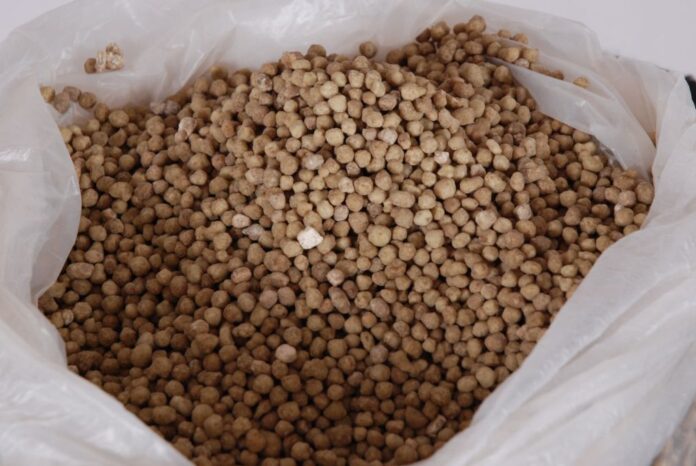LAHORE: The increasing price trend of Di-Ammonium Phosphate (DAP) in the international market is likely to exert pressure on local prices and impact application on crops by farmers as the direct subsidy mechanism announced by the government is yet to be finalised.
In October, the Economic Coordination Committee (ECC) had approved the Rabi package to extend 25 per cent reduction, equivalent to Rs1,000 per 50kg bag, in the price of DAP. To avail this highly targeted subsidy, farmers were required to register using their national identity cards after which the amount was to be disbursed through scratch card schemes.
However, the subsidy programme has not yet materialised as the federal and provincial governments have failed to achieve a consensus on its implementation mechanism.
The total market for DAP in Pakistan is approximately 2 million tonnes, out of which around two-third volume is imported to meet the country’s agricultural needs. In the year 2020, DAP prices surged globally by around 27 per cent from $296 per tonne to $376 in December.
In comparison, domestic DAP prices have only increased marginally (12 percent) from Rs3,575 per bag to Rs4,000 per bag, according to the Pakistan Bureau of Statistics.
Despite higher prices, global demand of DAP remains strong and most suppliers are already sold out through January and February 2021 due to record imports from India and Brazil. The short global supplies have pushed the current price for DAP in the range of $425 to $440.
In the coming weeks, Pakistan is likely to witness a rise in DAP import cost by $70 to $80 per tonne, translating to around Rs500 per bag. Figures of National Fertiliser Development Centre (NFDC) reveal that till November 2020, despite the price increase, DAP sales recorded a 7 per cent increase to 1,966 tonnes as compared to the same period last year.
Similar trend has been witnessed in urea sales that have jumped by 6 per cent versus last year, with dealers taking advantage of official urea pricing at 2012 level and the willingness of farmers to pay more by charging them Rs50 to Rs100 additional per bag.
The higher sales can be attributed to significant improvement in the country’s farm economics owing to a general rise in international commodity rates and better support pricing by the government to facilitate the farmers.
According to Research at Topline Securities Limited Deputy Head Shankar Talreja, “By announcing timely support packages, the government has done well to maintain lower cost of inputs to control inflation and maintain growth momentum of the agricultural sector”.
Globally, DAP is recognised as the most standard source of phosphorus and used with urea to provide balanced nutrition for crops. The balanced use of fertilisers can improve wheat productivity by 35 per cent and maize by 40 per cent, which are the leading contributors to Pakistan’s economy.
With the price of DAP 2.5 times higher than urea, and direct subsidy mechanism yet to be finalised, there may be sub-optimal application by farmers that may prove to be detrimental to crop yields, thus affecting Pakistan’s food security.




